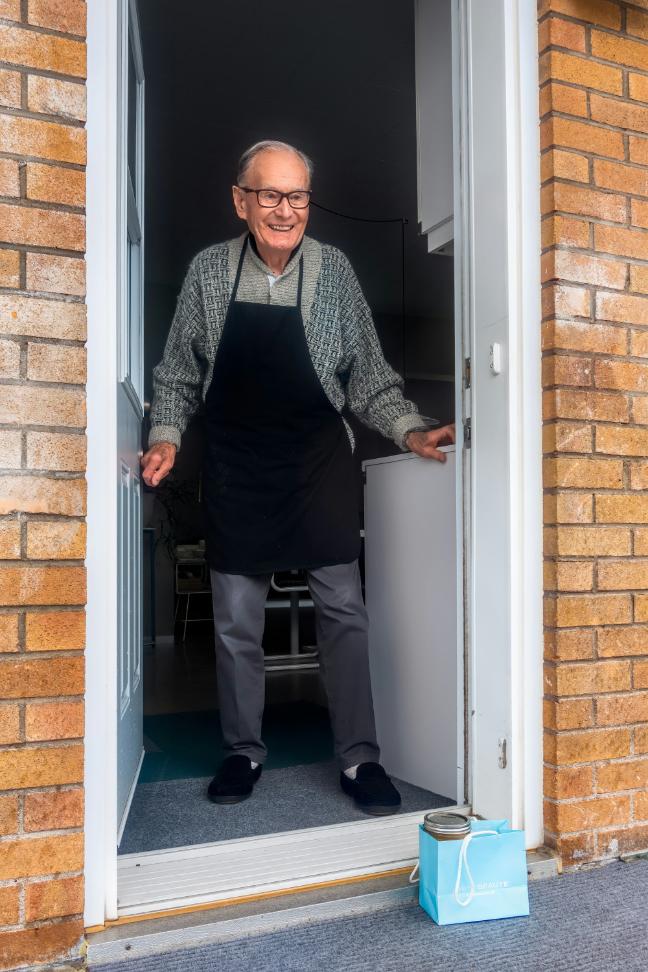How Respite Care Works?

Understanding Respite Care In Canterbury
Caring for a loved one is a profound responsibility, but even the most dedicated primary caregivers need time to rest, recharge, and tend to their own personal needs. This is where respite care steps in, offering both carers and the person you care for much-needed support and a break from caring duties. In the UK, respite care services are widely available, but navigating the different types of respite care, understanding funding options, and knowing how to arrange support can be confusing. Below, we explore how respite care works, the various options, and the many benefits for families and carers.


What Is Respite Care?
Respite care is a short-term support service offering temporary care to individuals who need help with daily activities, allowing their regular carer a well earned break. This can range from a few hours to several weeks, depending on needs and circumstances. It’s designed for situations where the main carer must take a break, faces an emergency, or simply wishes to focus on their own wellbeing for a short period of time. Some carers opt for a regular short break, while others may require assistance at a moment’s notice due to unforeseen events.
Different Types of Respite Care & How They Work
The basic rule of respite is simple: provide temporary care for the person you care for so you can step away, knowing your loved one’s welfare is safeguarded. Respite services are typically flexible and can be accessed through various means:
- Care homes: Such as Lark View, offer respite stays from a few days up to four weeks, giving both carers and care recipients a chance to rest, recuperate, or enjoy different surroundings. We offer a change of pace and environment for your loved one, with nursing supervision and support tailored to their needs.
- Home care services: Involve a respite carer visiting the person’s home, delivering personal care and companionship, allowing for a break from caring in a familiar environment. This option is ideal for those who prefer the comfort of their own home. Professional respite carers visit to provide care, companionship, and even assistance with outings or appointments.
- Day care centres: Provide supervised activities and care during the day, so carers can manage work or personal affairs. These are great for social interaction and engagement, and allow your loved one to enjoy activities and companionship during the day, giving the regular carer a reliable break.
- Live in care: A professional resides in the home temporarily, taking over all caring responsibilities, including nursing care and personal needs. An excellent option for high-dependency individuals, this allows for round-the-clock support, with a carer living in the house temporarily.
- Emergency respite care: Arranged quickly, sometimes at a moment’s notice, if a carer becomes suddenly unavailable due to illness or a hospital stay. This type delivers temporary support in unexpected situations.
All these options ensure the care recipient’s needs, whether medical, physical, or emotional, are met while the regular carer gets a break.
Arranging Respite Care in Canterbury
One of the first steps to arrange respite care is to request a carer’s assessment from the local council. This assessment reviews your situation, identifies the level of help required, and explores what options would best suit both you and your loved one. Sometimes, a needs assessment for the person you care for is also recommended, to tailor services and address specific requirements.


Financial Support and Funding Options within the UK
Navigating funding options for respite care can be a vital part of planning. In the UK, your local council may be able to provide financial support, especially after a needs or carer’s assessment. This may partially or fully cover the costs of a respite stay in a care home, short-term home care visits, or other respite services.
If you are on Carer’s Allowance, it’s crucial to notify the council when taking longer breaks, as special rules apply if your break lasts over four weeks in a six month period. If you exceed this period, you may lose your allowance, so plan ahead and seek guidance if needed.
Some families choose to self-fund respite care for complete flexibility, especially if they want personalised support or have preferences about the respite care home or provider used. Charitable organisations, support groups, and some employers can also assist with information about respite breaks, exceptional support, and short-term funding initiatives.
The Many Benefits
Respite care and carers breaks are not only about offering primary caregivers a breather; they’re vital for the overall well-being of both carer and care recipient. Some of the other benefits include:
- Improved mental and physical health for carers. Taking a break helps prevent burnout and reduces stress.
- Enhanced social engagement and stimulation for the person cared for, especially in day care centres and group settings.
- Opportunity to experience new people and routines, which can be enriching for many older adults.
- Peace of mind for carers, knowing their loved one is in a safe, supportive environment.
Emergency Respite Care
Crisis can strike at any time, and it’s important to know how respite care works in emergencies. Whether it’s a sudden illness, hospital stay, or other unforeseen event, emergency respite care ensures that there is no gap in support for vulnerable individuals.
Emergency respite services may be provided in care homes, the person’s own home, or even at a relative’s house with professional support. These arrangements can typically be made quickly by contacting your local council or a reputable home care provider. Emergency respite is usually available for a short period, offering temporary support until normal arrangements can resume.
Planning Ahead: Tips for Carers and Families
It’s a good idea to plan ahead for respite care, even if you do not need it immediately. By contacting your local council or a qualified provider, you can explore options, understand eligibility for financial support, and ensure you’re prepared for any event, be it a routine short break or an unplanned emergency.
Some practical steps include:
- Applying for a carer’s assessment and a needs evaluation for the care recipient.
- Researching care homes, day care centres, and home care services in your area.
- Considering how your loved one would best adjust: some prefer a familiar environment, while others might enjoy a change.
- Reviewing funding options and the impact on Carer’s Allowance or other benefits.
- Making a plan with family members and ensuring everyone knows what to do if an emergency arises.
Finding the Right Respite Care Team
At Lark View Care Home in Canterbury, we offer specialist respite care services tailored to support both those needing short-term care and their primary caregivers. Our approach is centered on delivering the highest levels of comfort, safety, and happiness, regardless of how long someone stays. Lark View is well-suited for people seeking a temporary caregiving solution, whether it’s for a planned holiday, post-surgery recovery, an emergency, or simply to provide family carers with a well-deserved break.
What sets Lark View apart in Canterbury:
- Holistic Support: We combine medical and wellness-centered care to cover every need, from personal care and medication management to emotional reassurance and encouragement for each resident.
- Personalised Care Plans: Lark View collaborates closely with residents and their families to create individualised and personalised respite care plans. This ensures that each guest receives the right level of care to promote well-being and peace of mind during their stay.
- Flexible Duration: Our respite stays can range from a few weeks to several months. They cater to a variety of situations, including recovery from surgery, caregiver relief, and as a way for new residents to experience care home life before considering a permanent move.
- Warm, Safe Environment: All staff are highly trained not just in providing physical care, but in fostering a welcoming and supportive atmosphere that encourages social interaction and emotional comfort.
- Comprehensive Facilities: Residents benefit from elegant en-suite rooms, fine dining, a landscaped garden and café, activity programs, arts and crafts, a hair salon, cinema, and library, helping make each stay both restful and engaging.



Conclusion: The Many Benefits of Respite Care
Respite care is a lifeline for countless carers and family members, helping sustain the delicate balance between caring responsibilities and the carer’s own overall health. By understanding how respite care works, exploring respite care options, and seeking appropriate support, you ensure that both you and your loved one enjoy the highest quality of life possible. Whether you need care for just a few hours or several weeks, taking advantage of the right respite services is truly an investment in well-being for the whole family.
Lark View is both a residential care home and nursing home in Thanington, near Canterbury, Kent. We pride ourselves on providing considerate and comprehensive care by a team of experts, 24 hours a day, 7 days a week, in a supportive and homely environment.






